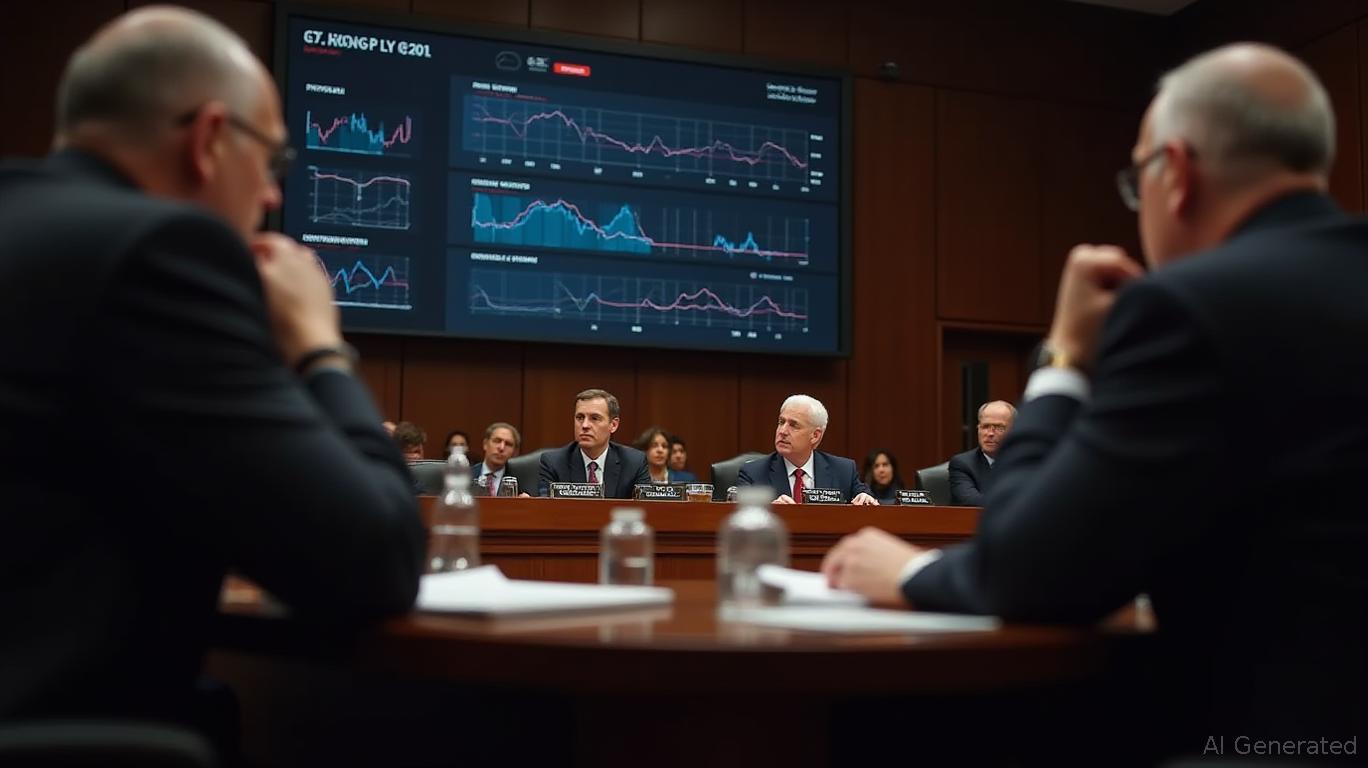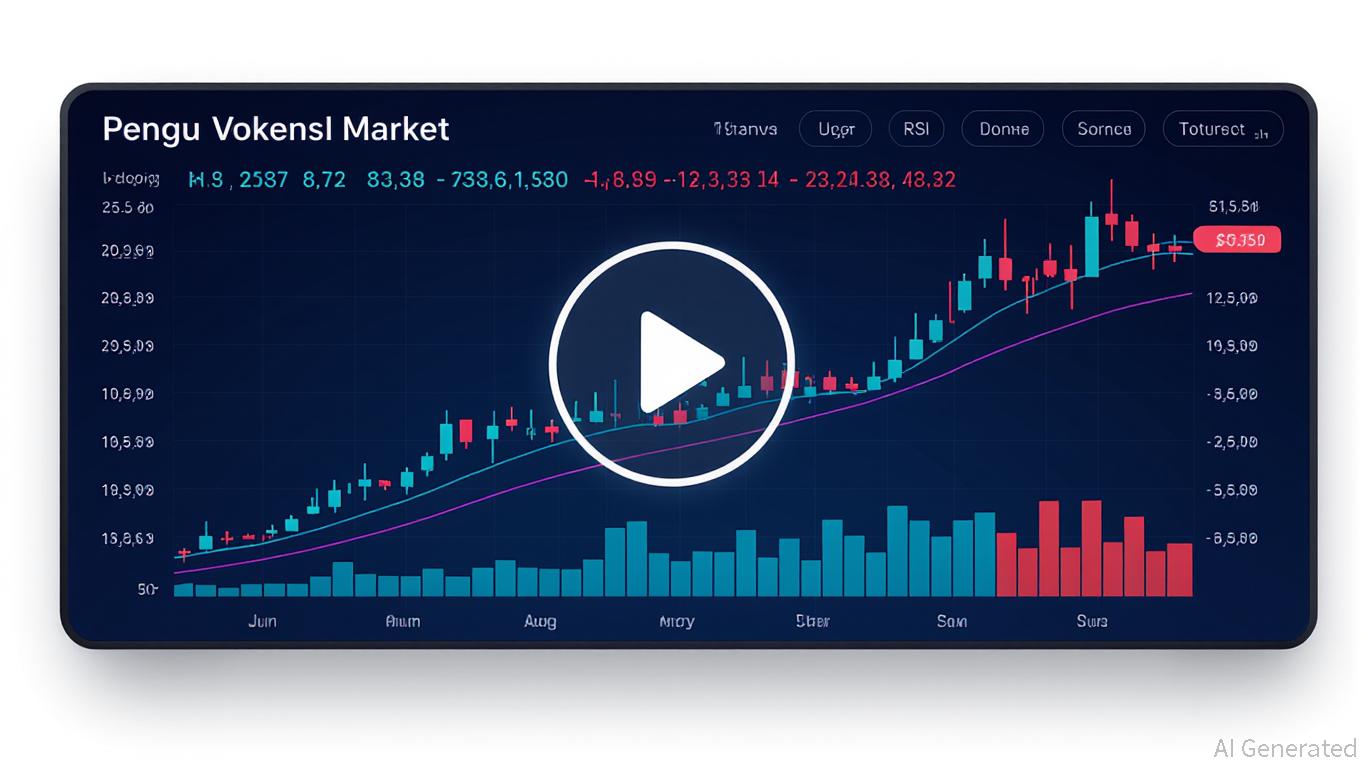Senate Crypto Tax Hearing: Balancing Regulation and Innovation at a Pivotal Moment
- U.S. Senate Finance Committee will hold a key hearing on October 1, 2025, to address digital asset taxation under Senator Mike Crapo’s leadership. - Testifiers including Coinbase’s Lawrence Zlatkin and Coin Center’s Jason Somensatto will advocate for exemptions on small crypto transactions and clearer property classification. - Legislative proposals like Senator Lummis’ $300 de minimis exemption bill could resurface, balancing investor relief against IRS enforcement challenges. - Market turbulence, inclu

The U.S. Senate Finance Committee is set to hold a significant hearing on October 1, 2025, focusing on how digital assets are taxed. Titled “Examining the Taxation of Digital Assets,” the session will be led by Senator Mike Crapo (R-Idaho) and will gather testimony from prominent figures in the crypto sector. The committee intends to address the challenges of fitting current tax regulations to digital assets—a matter that has become increasingly urgent due to market volatility and demands for clearer rules.
Testimonies will be provided by Lawrence Zlatkin, who serves as Vice President of Tax at
The hearing will also touch on current legislative initiatives. Senator Cynthia Lummis (R-Wyoming) has previously put forward a bill suggesting a de minimis exemption for transactions below $300 and lower tax rates on
This hearing comes at a time of heightened instability in the crypto market. In late September 2025, Ethereum’s value fell below $4,000, wiping out $22 billion in market capitalization and leading to $498 million in liquidations. This downturn has intensified political attention, with lawmakers possibly using the situation to justify stricter regulation. The Senate’s review may speed up efforts to clarify whether crypto profits are taxed at the moment of transaction or only when gains are realized—a distinction that has left many investors uncertain.
These discussions are taking place against the backdrop of the Trump administration’s efforts to bring more regulatory clarity, though delays in budget approvals could push back the hearing date. Should the hearing move forward, it is expected to shape the future of digital asset taxation, which currently treats crypto as property under IRS rules. However, ongoing disagreements about whether crypto should be classified as property, securities, or a new asset class continue to pose challenges.
The results of this hearing could have significant consequences. More stringent reporting rules might dampen trading activity and slow adoption, while exemptions could give the industry some relief. Observers point out that the IRS’s growing emphasis on crypto compliance, including enhanced tracking capabilities, may have a greater impact than short-term market swings. The October 1 hearing marks a pivotal moment in deciding whether the U.S. will encourage digital asset innovation or implement regulations that could hinder growth.
Disclaimer: The content of this article solely reflects the author's opinion and does not represent the platform in any capacity. This article is not intended to serve as a reference for making investment decisions.
You may also like
Assessing Bitcoin’s Price Movement in Light of Macroeconomic Changes and Positive ETF Sentiment in November 2025
- Bitcoin faces macroeconomic headwinds in 2025, with Fed tightening causing a 15% crypto market cap drop, but ETF approvals drove 45% growth in institutional Bitcoin ETF AUM to $103B. - Institutional investors navigate $81k-$91k Bitcoin consolidation, balancing Fed policy risks against 68% adoption rates and regulatory clarity from EU MiCA and U.S. GENIUS Act. - Strategic entry strategies include core positions at $85k-$87k support, hedging with stablecoins/altcoins, and timing Fed rate cut expectations t

Moonbirds to launch BIRB token in early Q1 2026

Aligning Universities with Emerging Industries: The Critical Need for STEM Investment
- Global industries demand AI, renewable energy, and biotech skills faster than traditional education systems can supply, creating a critical skills gap. - Universities like MIT and Stanford are embedding AI across STEM curricula while industry partnerships accelerate hands-on training in automation and biomanufacturing. - Renewable energy programs with apprenticeships and public-private funding are addressing talent shortages as $386B global investments outpace workforce readiness. - Biotech's fragmented

PENGU Token Value Soars: Blockchain Data and Institutional Interest Indicate Optimal Timing for Investment
- PENGU ranks #81 with $706.5M market cap, showing rising institutional interest and whale accumulation. - The pending Canary PENGU ETF, if approved, could unlock institutional capital by including NFTs in a U.S. ETF. - Mixed on-chain signals (RSI 38.7, OBV growth) and 2B tokens moved from team wallets highlight uncertainty. - Partnerships with Care Bears and Lufthansa, plus Bitso collaboration, expand utility but face regulatory risks. - Recent 8.55% price rebound and 2.6% gain post-BNB listing suggest ca
